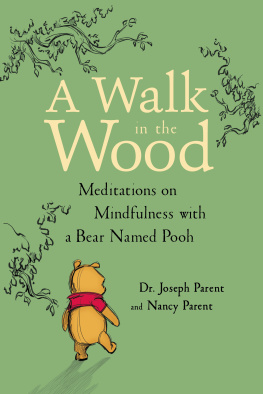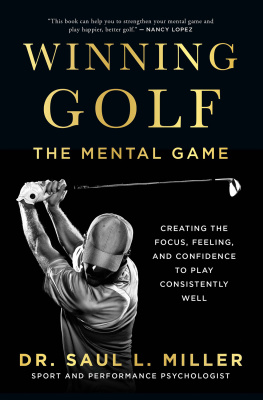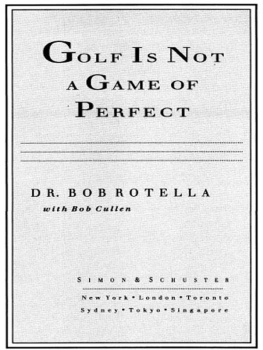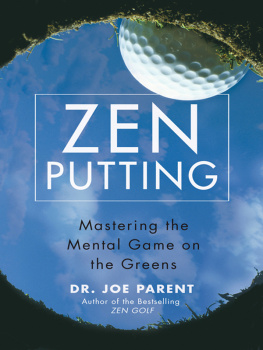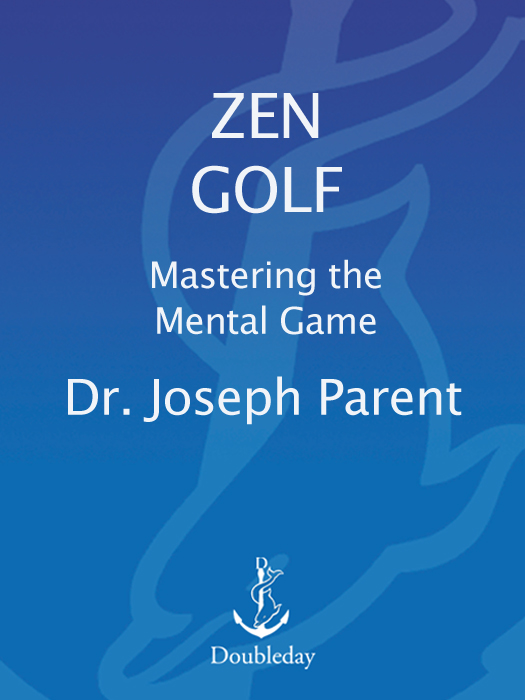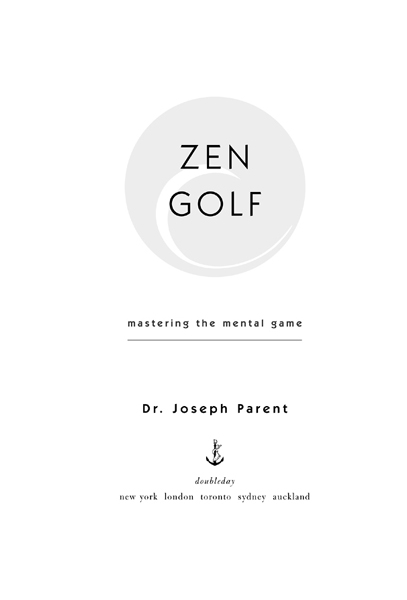PUBLISHED BY DOUBLEDAY
a division of Random House, Inc.
1540 Broadway, New York, New York 10036
D OUBLEDAY and the portrayal of an anchor with a dolphin are trademarks of Doubleday, a division of Random House, Inc.
This book is not intended to take the place of medical advice from a trained medical professional. Readers are advised to consult a physician or other qualified health professional regarding treatment of their medical problems. Neither the publisher nor the author take any responsibility for any possible consequences from any treatment, action, or application of medicine, herb, or preparation to any person reading or following the information in this book.
Cataloging-in-Publication Data is on file with the Library of Congress.
eISBN: 978-0-385-50715-8
Copyright 2002 by Joseph Parent
All Rights Reserved
v3.1
To the Venerable Chgyam Trungpa, Rinpoche, who brought the teachings of Shambhala warriorship to the West and showed me the true nature of mind.
And to his heart son and lineage holder, Vajra Regent sel Tendzin, who taught me how to manifest the vision of Shambhala warriorship in golf and in life.
contents
acknowledgments
M any people helped make this book what it is. Foremost are my teachers, the Venerable Chgyam Trungpa, Rinpoche, and the Vajra Regent sel Tendzin (Thomas Rich, Jr.), as well as many other great masters of mind and meditation with whom I have had the privilege of studying. A special note of appreciation to Patrick Sweeney, the main student of sel Tendzin and my brother in Buddhist and Shambhala practice and study.
Ed Hanczaryk, a Shambhala golfer from the beginning, is a highly respected teaching professional now living in Nova Scotia. Our discussions about working with body, mind, and emotions in golf were the start of my coaching career. That was a long time and a lot of lessons ago. Thanks for everything, Ed.
Thanks as well to the rest of the charter members of the Shambhala Golfers Association, the band of gentle warriors that manifested the principles of Shambhala Golf with the inspiration and guidance of our teachers.
There cant be a teacher without students or a coach without players. To the many golfers who were willing to think outside the box and entrust their games to our work together, I am deeply grateful. Particular appreciation to touring professionals Brian Wilson, Willie Wood, Alex Quiroz, Shane Bertsch, Mike Meehan, Lisa Hackney, Rusty Clark, Jaxon Brigman, Landry Mahan, Mike Standly, John Rollins, Jeff Lowden, and Allan MacDonald.
To Jack and Barbara Nicklaus, much appreciationto Jack for the inspiration of his unsurpassed mental game; to Barbara for her unsurpassed graciousness and kindness.
To Fred Shoemaker, gratitude for his friendship and for being the model of an ideal coach. To Dave LiCalsi of the Dave Pelz School, thanks for the conversations that went to the heart of the matter. To Michael Murphy, a toast to his inspiring vision of Golf in the Kingdom, set forth long before he ever heard about the kingdom of Shambhala.
To Casey Paulson and the staff at Rancho San Marcos Golf Course in Santa Barbara, thank you for welcoming me to coach at such a marvelous golf course and teaching/practice facility.
Thanks to Edward Sampson, Arlene Dorius, Jeff Herrick, Mimi Rich, Bruce Spears, Katherine Butterfield, Randy Sunday, Irv and Leah Mermelstein, Glen Kakol, Sandy Saunderson, and David Yossem for their part in expanding the vision and path of this adventure. Thanks to the many other dear friends of the Ojai Valley Dharma Center and other meditation centers who supported and encouraged my work in teaching golf as a vehicle for practicing awareness and manifesting Shambhala warriorship.
Many thanks to my editor, Jason Kaufman of Doubleday, for his vision, insights, and guidance. Great appreciation to my literary agent, Angela Rinaldi. She is also a gifted editor who nurtured this book from seed to blossoming flower. Angela, youre the best.
Thanks to the friends who reviewed and commented on the manuscript, especially Steve Moore, my assistant coach/golf school coordinator, and fellow author and golf partner Ken Zeiger, for their enthusiastic involvement and insightful suggestions.
Last but not least, deep gratitude to my whole family for their encouragement in my work on this book. A special salute to Mom for her generous and enthusiastic support. My sister Nancy, a brilliantly creative writer and editor, provided invaluable help in every step of this books evolution. Nan, you have no idea what a joy it has been to work with you.
introduction
I m a golf coach, but I dont instruct golfers on their swings. I teach them how to use their minds on the golf course and how to play from their hearts. I try to give golfers a different way of thinking about how they play the game and how they treat themselves on the golf course. I teach golfers how to play Zen golf.
Zen means action with awareness, being completely in the present moment. The qualities that accompany the Zen experience include expansive vision, effortless focus, a feeling of equanimity and timelessness, abundant confidence, and complete freedom from anxiety or doubt. Interestingly, this is exactly the way champion athletes describe being in the Zone. It is also strikingly similar to the way golfers describe the feeling of a perfectly struck golf shot, a feeling every golfer wants to have again and again.
Harvey Penick, the revered golf teacher, said, All seasoned players know, or at least have felt, that when you are playing your best, you are much the same as in a state of meditation. Youre free of tension and chatter. You are concentrating on one thing. It is the ideal condition for good golf.
In the last twenty years, golf equipment such as clubs, balls, and training aids, including the use of video for swing analysis, have improved tremendously. Swing instruction books and magazines are more plentiful now than ever. Still, no appreciable improvement in the average golfers scores has resulted. Why?
No matter how sophisticated their equipment or their knowledge about the swing, if golfers dont know how to work with their minds on the course, they encounter the common mental obstacles that keep them from realizing their potential. Performance anxiety, emotional reactions, and distractions interfere with golfers abilities. Overcoming such obstacles is the key to breaking through to lower scores. The stories and lessons in Zen Golf: Mastering the Mental Game are about freeing ourselves from fear and doubt, and activating confidencewhat every golfer needs.
The principles of Zen Golf evolved from my study and practice of Buddhist meditation and psychology, as well as an enduring passion for golf. One of my meditation teachers, sel Tendzin, was an avid golfer. He used golf outings as a setting for communication with his students. After a round of golf, he would talk with us about the connection between golf, meditation, and the teachings of Shambhala warriorship, a companion tradition to Buddhism. Shambhala warriorship emphasizes fearlessness and dignity and is similar to the mind-set of martial arts traditions like Zen archery. These experiences with my teacher gave me a different perspective on the game, one that formed the basis for my coaching and the lessons in Zen Golf.
Tiger Woods, in an ABC-TV interview, said, My mothers a Buddhist. In Buddhism, if you want to achieve enlightenment, you have to do it through meditation and self-improvement through the mind. Thats something shes passed on to me: to be able to calm myself down and use my mind as my main asset.



